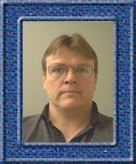Home » Contact Us » Staff » Tim Holman
Tim Holman
Dr. W. Timothy Holman is a member of the Institute for Space and Defense Electronics and a Research Associate Professor in the Department of Electrical and computer Engineering at Vanderbilt University. He has specialized in the areas of analog and mixed-signal integrated circuit design in both industry (IBM Corporation) and academia (Georgia Institute of Technology, University of Arizona, Vanderbilt University) since 1988. His current research is focused on radiation effects in analog and mixed-signal circuits, particularly with application to the Trident II D5le life extension program.
Research Associate Professor in the Department of Electrical and computer Engineering at Vanderbilt University. He has specialized in the areas of analog and mixed-signal integrated circuit design in both industry (IBM Corporation) and academia (Georgia Institute of Technology, University of Arizona, Vanderbilt University) since 1988. His current research is focused on radiation effects in analog and mixed-signal circuits, particularly with application to the Trident II D5le life extension program.
Education:
Ph.D. EE 1994, MSEE 1988 – Georgia Tech
BSEE 1986 – University of Tennessee
Accomplishments:
-
Assisting in the analysis and simulation of single event effects in operational amplifiers and voltage references, including the LM124 operational amplifier, the LM236 voltage reference, and the LMC6484 operational amplifier.
-
Technical leadership of a design effort to create an externally-powered implantable dosimeter for medical applications that utilizes ring oscillators for precise measurement of very low total dose.
-
Technical leadership of a design effort that resulted in a custom total-dose hardened (100 krad [Si] digital-to-analog converter in a bipolar integrated circuit process.
-
Assisting in the design and analysis of a radiation-tolerent 8 megasample-per-second pipelined analog-to-digital converter (with associated subcircuits such as D/A converters and operational amplifiers) for SOI and CMOS processes.
-
Supervising the design of radiation-hardened PWM (pulse-width modulation) feedback circuits for DC/DC converters, the analysis and characterization of commercial PWM integrated circuits, and macromodeling efforts for linear integrated circuits used in these applications. In addition to this research, Dr. Holman has pioneered new methods for CD-ROM and web-based delivery of short course material that is being used to more effectively educate the radiation effects community in RHBD techniques.
Connect with ISDE
©2024 Vanderbilt University ·
Site Development: University Web Communications